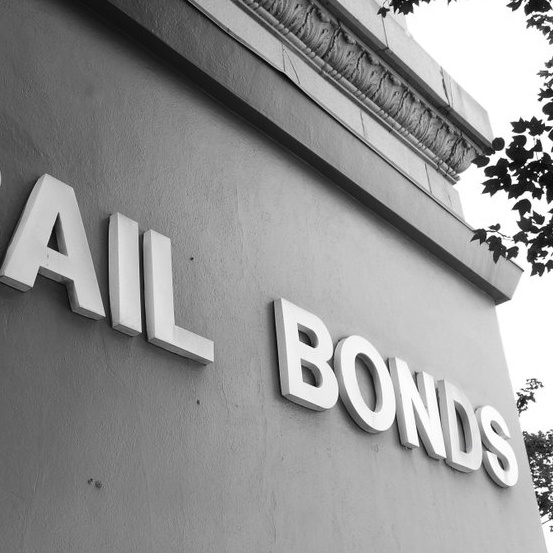
What is a state bail?
When you’re arrested, where and on what charges you’re arrested will determine what sort of bail you’ll be issued, if the arraigning judge sets bail. There are three categories of bail as follows:
- Local Bail – for arrest of city or county crimes
- State Bail – for arrest of state crimes
- Federal Bail – for arrest of Federal crimes
In the state of Indiana, bail is the same as it is in any other state. When a person is arrested, the judge may or may not allow that person to post bail and be released from custody until their court date. However, how bail bonds work will differ between states, with some offering “state bail” while other states do not.
What is bail definition in Indiana?
The State of Indiana does have a state bail, which is defined in several ways, but the end results being the bail will allow that person to be released from custody once they have paid that set bail amount. The objective of state bail funds being paid is to assure the state that the arrested person will return for all court ordered appearances.
A person arrested in Indiana can be held behind bars for up to fifteen days before a bond is set. The bail process begins once a judge has set the bail amount and informed the defendant. The defendant can contact a bail bonds agent to post the bail, contracting between the state and bail bond agent to appear before the court as ordered once they are released. There is usually a 10% payment required to the bail bond agent for this service.
Contacting the bail bond agent can also be done by a family or friend of the defendant with the same agreement to pay the state bail for the defendant to be released. However, the family member or friend are co-signing this agreement and will be responsible for that person appearing at all court dates.
What are free state bail bonds?
From June 2016 through October 2017, eleven counties in the state of Indiana launched a program that was considered a progressive for pretrial release. It was using a different methodology for persons that had been arrested and awaiting trial behind bars.
Under this pilot program, instead of a judge setting local or state bail for anyone arrested, they used a risk assessment and determined if a defendant should be released with an agreement they would appear for any court dates without posting bail.
The outcome intentions was to accomplish several different things, among them were the following:
- Reduce jail overcrowding
- Save taxpayers money
- Help the local economy
- Be more humane and rational with low-risk offenders
- More rational for defendants that were low-income, below the state poverty level
Was it worthwhile? There are arguments to both sides, some saying it was a risk by setting free what could be dangerous criminals. Bail bond agents that provide state bail felt it may be helpful for minor offenders but could cost the taxpayers of Indiana more in the long run.
Because there wasn’t any actual data recorded before this program was started, there isn’t any way to measure the success or failure. Some counties within Indiana said they had a decrease in failure-to-appear charges, other counties didn’t have any data to support that same finding.
Can a person on bail leave the state?
Along with other factors and if a defendant is out on Federal bail or state bail will determine the ability to leave the state of Indiana. Any person out on state bail will need to adhere to restrictions put in place by the judge and the bail bond agent. No matter what type of bail a person is released, local, Federal, or state bail, leaving the country is never allowed.
Travel out of the city is acceptable, but any one on state bail will be in violation if they were to leave the state of Indiana without permission by their bail bond agent. Every case is different, and there are complexities within the law that make it more difficult to know what I and isn’t allowed. This is why having a criminal defense attorney is always recommended.
Which state has no bail?
There are eight states in the country that have abolished state bail between 2008 and 2012 as a method to be released from jail until the defendant’s court date. Those eight states are:
- Illinois
- Kentucky
- Maine
- Massachusetts
- Nebraska
- Oregon
- Washington D.C.
- Wisconsin

In which state anticipatory bail is not available?
Every state has various laws when it comes to bail, but the basics are typically when somebody is arrested for a non-capital crime, bail is usually expected. There are some states with their statues modeling federal law that permits the defendant pretrial detention for serious violent offenses.
Such as Alaska and New Jersey with reforms enacted in 2014 to abolished cash bail for most cases. Instead a defendants is released with supervision or mandatory detention after risk assessment has been reviewed and determined.
As of 2008, Illinois, Kentucky, Oregon, and Wisconsin and in 2012 Maine and Nebraska followed suite to abolished commercial, aka for-profit bail bonds by bail a bond agency. A required deposit instead, paid to the courts.
- California has a bail schedule system where the state court judges refer to this bail schedule, the defendant’s criminal history, and concerns of community danger. The elimination of cash bail in its whole being was lost in the November 2020 election.
- Texas, the law reads, “the ability to make bail is to be regarded, and proof may be taken upon this point.” Some courts however, have set up a fixed schedule to determine bail with no consideration of the ability for the defendant to pay according to the scheduled amount.
- Tennessee has a bail system for all offenses with capital crimes possible for denied bail.
State Bail Jumping is when a defendant does not appear at court dates after being released on bail. This is also called Failure to Appear. It is the state attorney hat determine if the act intentionally without a legal reason. Call 317-423-9300 today for your bail bonds needs in Indianapolis, IN.
